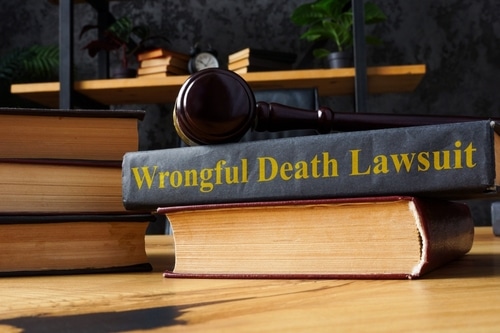One of the first things our clients ask us when they come into the office for the first time is how much their personal injury case is worth. It’s only natural to want to know how much money your case may be worth. After all, you probably have medical bills piling up, wondering how on Earth you’re going to pay them.
The good news is that our Columbus personal injury attorneys have decades of combined experience handling personal injury claims through civil lawsuits. They know what types of damages you’re entitled to, including compensatory damages, which aim to restore your financial state to what it was before the injury. Economic damages are a key component of compensatory damages, covering financial losses such as medical expenses and lost wages. They also know how to prove your case.
All you have to do is call and schedule your free, initial consultation. You can sit down with someone who’s handled plenty of cases like yours before. While each case is unique and different, that doesn’t mean that your lawyer doesn’t have an idea of what types of damages you can demand. The facts of your case will determine the damages you may collect.
Since we do offer the first consultation at no charge, you have nothing to lose and everything to gain.
Your Columbus Personal Injury Attorney Must First Prove Fault
Before you can start talking about damages, your Columbus injury attorneys will need to prove fault in your personal injury claim. In most personal injury cases, fault is determined by a negligence standard. This means you’ll have to prove negligence in order to collect damages from the other party.
All negligence means that the other party didn’t behave the way a reasonable person would have given the circumstances. It requires that your Columbus injury attorneys prove four things. In personal injury lawsuits, the injured person’s actions or inaction can significantly impact the damages award, especially when considering concepts like comparative negligence and contributory negligence. Additionally, non-economic damages, such as pain and suffering, can also be influenced by these factors.
Duty of Care
Your Columbus injury attorney must prove that the defendant owed you a duty of care, which is a fundamental aspect of personal injury law. This isn’t all that difficult regardless of the type of case you’re filing. For example, in a slip and fall case, you’d have to show that the property owner owed their guests a duty to keep all conditions in their property clean and safe.
Breach of Duty
You must also show that the defendant breached this duty of care. In order to prove this, it comes down to the facts of your case and how the breach impacted the injured person. If you were involved in a car accident, your Columbus injury attorney would have to show that the defendant was texting and driving or speeding at the time of the collision. In a slip and fall case, you would have to show that the floor was wet or damaged and that this caused your fall.
Injury
Obviously, you must demonstrate that you suffered some type of injury. This can be a financial, physical, or emotional distress injury. In the car accident example above, you would have to show that your vehicle was destroyed or that you injured your back during the crash.
Causation
Your lawyer is going to have to prove causation. This means that the defendant’s behavior and breach of duty were directly responsible for your injuries. In a car accident, this is not difficult to prove. In other types of personal injury cases, it may be a little more difficult for your Columbus injury attorney to demonstrate this final element of negligence in a personal injury lawsuit.
Once your attorney has demonstrated all four elements of negligence, then you can move on to discuss damages.
Your Columbus Personal Injury Attorneys Have to Prove Specific Damages
Not everybody is entitled to damages. Sometimes it’s hard for our clients to understand that the only way you’re entitled to damages is if you suffered an actual injury. It’s not enough that you were involved in a car accident or slip and fall. If you can’t submit proof that you suffered some type of physical injury, you probably will not collect damages.
Some of the damages you may be entitled to include the following, such as medical expenses for treatment of your injuries. Additionally, you may also be entitled to general damages, which cover non-monetary losses such as pain and suffering.
Medical Bills and Future Medical Bills
If you have been accruing medical bills since the time of your accident, make sure you keep good track of them. Keep all your receipts and explanation benefit forms. Your Columbus injury attorney will need this to prove that you’re entitled to reimbursement.
Property Damage
These damages are typically limited to car accident cases because most people don’t suffer property damage in any other type of personal injury case.
Lost Wages
If you miss more than a couple of weeks from work, and it wasn’t covered by personal time, you can demand compensation for any lost wages. Our Columbus injury attorneys will piece together information showing what you would have earned had you been able to work during this period,
Lost Future Income
If you find that you’re unable to do the same kind of work you do prior to your personal injury, you can demand damages for lost future income. Your attorney will determine the difference between what you would have earned had you never been injured, and what you will now earn going forward. Whatever that difference is will be multiplied by the number of years left retirement age which is 65 for legal purposes.
Pain and Suffering
Pain and suffering damages often make up the lion’s share of a personal injury plaintiff’s case. In addition to compensatory damages, which are meant to cover medical bills and other expenses, punitive damages can also be claimed. These punitive damages are awarded to punish the defendant for their reckless, negligent, or intentional conduct and to deter similar behavior in the future. As a general rule, compensatory damages for pain and suffering are equal to about three times what your medical bills were. They’re meant to compensate you for any physical or mental anguish caused by your personal injury.
Compensatory Damages
Compensatory damages are intended to restore the victim to the position they were in before the injury. These damages are divided into two subcategories: special damages and general damages. Special damages cover tangible economic losses such as medical expenses, lost wages, and property damage. General damages, on the other hand, address non-economic losses including pain and suffering, emotional distress, and loss of enjoyment of life. In Georgia, the calculation of these damages takes into account the severity of the injury, the impact on the victim’s life, and the duration of recovery.
Punitive Damages
Punitive damages in Georgia are awarded in cases where the defendant’s conduct was particularly egregious or malicious. Unlike compensatory damages, which aim to make the victim whole, punitive damages are designed to punish the wrongdoer and deter similar behavior in the future. Georgia law sets a high threshold for awarding punitive damages, requiring clear and convincing evidence of willful misconduct, malice, fraud, or wantonness. There is also a statutory cap on punitive damages, generally limited to $250,000, except in cases involving products liability or where the defendant acted with specific intent to harm.
Statutory Considerations and Limitations
Georgia imposes several statutory considerations and limitations on personal injury claims. The statute of limitations for filing a personal injury lawsuit is generally two years from the date of the injury. However, certain circumstances, such as the discovery of the injury or cases involving minors, can extend this period. Additionally, Georgia follows a modified comparative negligence rule, which means that if the plaintiff is found to be 50% or more at fault for their injuries, they cannot recover any damages. If the plaintiff’s fault is less than 50%, their compensation will be reduced by their percentage of fault.
Contact One of Our Columbus Injury Attorneys Right Away
If you have recently been hurt in any sort of accident, you owe it to yourself to meet with an experienced personal injury lawyer from our Columbus injury attorneys. Not only can they review your case, but they can also explain what to expect in the coming months. Having legal representation ensures that your rights are protected throughout the process.
Ideally, the defendant’s insurance company will pay your claim and you won’t need to file legal action. However, if you do, it’s nice to know that you have a Columbus injury attorney by your side. If the insurance adjuster knows you don’t have a lawyer, they’ll assume they can take advantage of you.
You don’t have to let this happen. All you have to do is retain an experienced Columbus injury attorney as soon as possible after your accident. This way, the insurance company will be put on notice that you’ve hired a lawyer. This way, they’ll take your claim more seriously.
We recommend that you contact our office today and set up a date and time to come into the office. We can schedule your free, initial consultation over the phone. Or you can visit our website and speak with one of our agents online.







